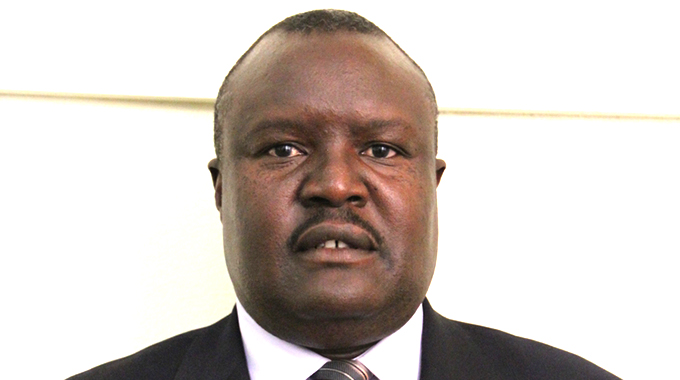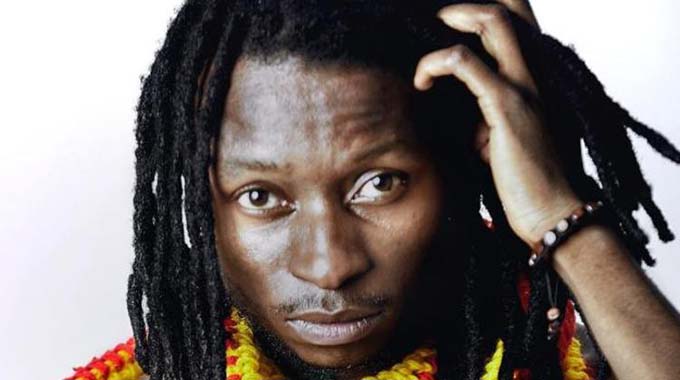Paying tribute to a living hero

Fungai Lupande Mash Central Bureau
As we celebrate 39 years of independence, lest we forget the sacrifices made by war veterans still living who fought side-by-side with their fallen comrades.
Today, as we speak, they are still working for the country, for the people.
Cde Cosmas Chiringa is one such struggle stalwart; a war veteran and an accomplished public servant employed as the Provincial Administrator for Mashonaland Central Province.
A veteran of the armed struggle, Cde Chiringa went to war in 1975 when he was only 15.
“I was at St Mary’s boarding school in Nyanga doing Form 2. What motivated me to join the liberation struggle was the propaganda material we were given at school. These were weekly magazines mostly on the propaganda on the north eastern offences of the liberation struggle fought mainly in Mashonaland Central by Kid Marong’orong’o,” said Cde Chiringa.
“The message which was meant to make us not go to join the liberation struggle motivated us in a way. I went to Mozambique when I was 15-years-old, did my first military training at Chimoio. After the training I did a course on commissariat work.
“My contribution during the war of liberation was mostly through educating my fellow comrades about politics. My mouth was my riffle and my words were bullets. I proceeded for training in Tanzania and I was appointed a regiment political commissar at 17.
“I was in charge of a regiment with more than 1 000 people and in the hierarchy of the province I was number three. My job was to teach politics within the period of training by Swahilis together with fellow comrades.
“In 1978, I was part of a group whose pass out parade was attended by Cde Julius Nyerere, Cde Josiah Magama Tongogara and former president Robert Mugabe came. Afterwards I went to Mozambique and went to Musikavanhu sector under Manica province where I was again in charge of the propaganda units up to 1979.
“I am part of a group of war veterans who remained in the bush and I had a special assignment to educate people on politics. Due to my commissariat work I continued teaching people about the elections, what it was all about and how people should vote. I also taught about the new dispensation we had entered and I was in charge teaching people the Zanu-PF election manifesto.”
In 1981 after independence, Cde Chiringa was part of a group assigned to Romania for a special course in military battalion and brigade commandment.
“I came back in 1982 and while we were away integration was taking place.
“Romania was a socialist country and it was not easy to be integrated because the British who were in charge of the integration didn’t want those who were trained in socialist countries,” he said.
“With this advanced course we believed the lowest rank we could get was that of a lieutenant colonel. We tried to engage the late Vice President Cde Simon Muzenda and we were told that the course we did was too advanced to be implemented in the country and arrangements were being done for us to go to the Zimbabwe Military Academy.
“To our surprise we were sent to a barrack in charge of training junior courses. An altercation ensured between our group and the commanders. We were detained and after two days we returned to Harare.”
Chiringa was also the first chairperson of war veterans in Makoni District to moot the idea of constructing offices for war veterans countrywide.
“There is no trained war vet who can say what I did was better than what war collaborators did because we fought side-by-side. Their recognition is also very important. We must guard against people who want to hijack the revolution,” he said.
“The benefits we enjoy today as war veterans are a result of the hard work of the late Cde Chenjerai Hunzvi. He did a lot and I believe he overworked himself to death because the system that was there was not responsive to the issues of war veterans.”
His life did not only end by being in the military alone. He also joined the civil service to start a new career.
“In July 1982, I joined the Ministry of Local Government. It was a new ministry created by Cde Eddison Zvobgo. They wanted war veterans and 20 of us joined. They wanted people with Ordinary Level, but during that time it was difficult to find someone with those qualifications. Some of us had only gone as far as Form 2,” Chiringa said.
“Our Minister deployed me to Mutasa, a rural station. I bought five sets of books so that I continue with my education.
“In 1989, I was transferred to Rusape and I joined a study group and completed my Ordinary Level and Advanced Level. I later enrolled at the University of Zimbabwe for my first degree which I completed in 2002.
“I enrolled for a Master’s degree in Public Administration at the same institution. Then I was promoted to District Administrator.
“To the young generation, keep on advancing yourself. I could not be promoted because I went to war or because of experience, but because of qualifications.
“In 2010, I was transferred to Mutare. I enrolled again at Africa University for my second Master’s degree in Public Sector Management. I did several courses in administration.
“I went for an interview for the post of director in the office of Minister of State and I succeeded, but due to my vast experience in the Ministry of Local Government I assumed the Mash Central Provincial Administrator post in September 2015.
“I have every reason to brag, the journey was not easy, but here I am.”
Zimbabwe has one of the highest literacy rates in Africa, thanks to the mass education policies that were adopted in the early 1980s and onwards by the ruling Zanu PF party.









Comments